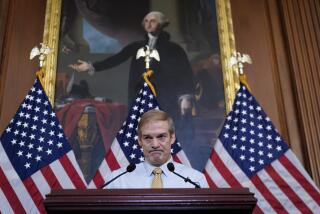Today’s Topic
- Share via
A series of startling statistics released over the past few months paints a picture of an American society careening toward moral disaster.
In California alone, the arrest rate for juvenile violent crimes shot up 60% between 1985 and 1991, while the percentage of children born to single teen-age mothers rose by 25% in the same time period, according to one survey.
Yet another survey found that more than 25% of California’s high school students are heavy drinkers by their junior year and 40% of those same 11th graders questioned also said they had tried marijuana.
“Nowadays, values are up for grabs,” says the Rev. Cheviene Jones, pastor of the Bethel African Methodist Episcopal Church in Los Angeles. “Morality gets to be something like a ship on a very rough sea and the sea determines what is getting tossed around.”
Why are our youngsters in so much trouble? Many experts believe there has been a breakdown in our value system, that children aren’t being taught even the simplest ethical principals.
In today’s What I’ve Learned, actor Tom Selleck talks about the importance of instilling values at an early age. His conclusion that youngsters must be taught by example rather than by lectures is supported by the experts who study such matters.
“Words by themselves are not particularly effective,” says Patricia Greenfield, a professor of psychology at UCLA. “I think most parents try to guide their children by telling them what to do. But it’s not what parents tell their children to do, it’s what children see their parents doing that is important.”
While educators and religious leaders certainly have to contribute to the ethical development of our children, most people would argue that the primary responsibility--if only for practical reasons of time--lies with parents.
“We (educators) have to be very careful about trying to establish our own ethics and values in children,” warns John Dean, Orange County superintendent of schools. “These are very personal kinds of things and you have to be sure you have support of the family.”
In addition, says Jones of Bethel AME: “People are redefining the family, what marriage is, fidelity, sexuality. That’s really what is going on in this society and that is what is causing the real trouble.
“If you go back to the historical model, family--father, mother, child--is the frame of reference,” says Jones. “It is a good frame of reference.”
Paul Hurley, an associate professor of philosophy at Pomona College, acknowledges the pain of the changes in American society, but argues that not everyone can carry an identical moral compass in the sort of society we have today. “We always had a homogeneity of values in this country, until very recently,” says Hurley. “With our ethnic and ideological diversity, you can’t presuppose a set of values that appeals to everyone. Since we believe in diversity, that’s clearly going to manifest itself in a diversity of the conception of the good.”
More to Read
Sign up for Essential California
The most important California stories and recommendations in your inbox every morning.
You may occasionally receive promotional content from the Los Angeles Times.










